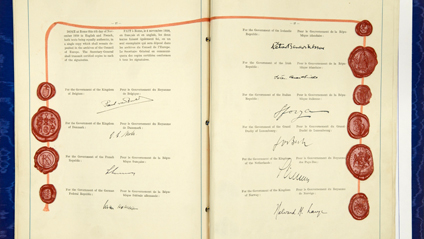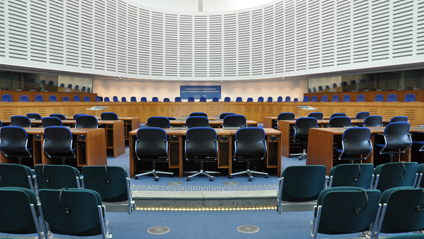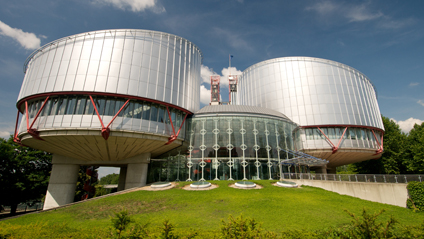A Convention to protect your rights and liberties
The European Convention on Human Rights is the first Council of Europe’s convention and the cornerstone of all its activities. It was adopted in 1950 and entered into force in 1953. Its ratification is a prerequisite for joining the Organisation.
The European Court of Human Rights oversees the implementation of the Convention in the 46 Council of Europe member states. Individuals can bring complaints of human rights violations to the Strasbourg Court once all possibilities of appeal have been exhausted in the member state concerned. The European Union is preparing to sign the European Convention on Human Rights, creating a common European legal space for over 700 million citizens.
Our rights
The Convention protects the right to life, security, freedom of thought and expression, to marry… it prohibits torture, death penalty, discrimination, slavery…
Reference texts
Now discover the Convention, through its preparatory work, its additional protocols and its simplified version.
Landmark judgments
The Court’s case-law has turned the Convention into a dynamic and powerful tool for dealing with new challenges and strengthening the rule of law and democracy in Europe.
EU accession to the Convention
The accession of the European Union to the Convention, which became a legal obligation under the Treaty of Lisbon, constitutes a major step in the development of human rights in Europe.





